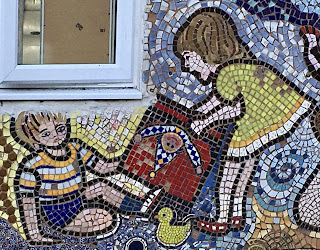Advent Adventure - Preparation
In some church pulpits there is often an bible inscription only visible to the preacher, with the word, “Sir, we wold see Jesus.” Perhaps that verse would be more appropriately sited on the preacher’s study desk. For the diligent preacher, the preparation for preaching even a 10 to 15 minute sermon can take many hours, numerous drafts and re-edits. However, it is possible that sometimes, more time is spent on the side issues of illustrations or even whimsical words that will hold the congregation rather than the meet truth derived from the teaching of Jesus.
Mahatma Gandhi, that great Indian or orator said, “An ounce of practice is worth more than a ton of preaching”. Two other preachers, Todd Stocker and E M Bounds say this of sermon preparation; “A speaker should approach their preparation not by what they want to say, but by what they want to learn.” and “A prepared heart is much better than a prepared sermon. A prepared heart will make a prepared sermon.”
We often consider Advent as a time of preparation, but we so often want to arrive at a destination before we have taken in the truth afforded by the moments of preparation. According to John Newton, the appreciation of the present moment is summed up in, “I am not what I ought to be, I am not what I want to be, I am not what I hope to be in another world; but still I am not what I once used to be, and by the grace of God I am what I am”
So how prepared are we to see Jesus in our preparation this advent season. In John 12 we read, “Now there were some Greeks among those who went up to worship at the festival. They came to Philip, who was from Bethsaida in Galilee, with a request. “Sir,” they said, “we would like to see Jesus.” Philip went to tell Andrew; Andrew and Philip in turn told Jesus.”
Advent is a journey of faith whereby we get to know our Lord—learning of him in Scripture, spending time with him in prayer, and developing our relationship with him. His Spirit prepares our hearts and minds so that others may see Christ in us.
Lord Jesus, Master of both the light and the darkness, send your Holy Spirit upon our preparations this advent season. We think that we have so much to do and seek quiet spaces to hear your voice each day, We who are anxious over many things look forward to your coming among us yet often fail to see you with us. We too would say, “Sir we would see Jesus” and “Jesus, may your presence be seen in us. Amen














